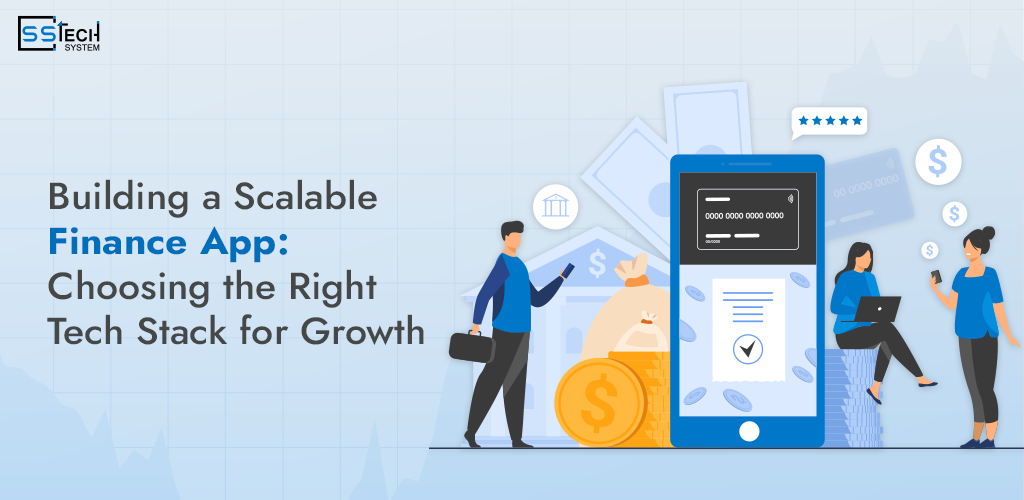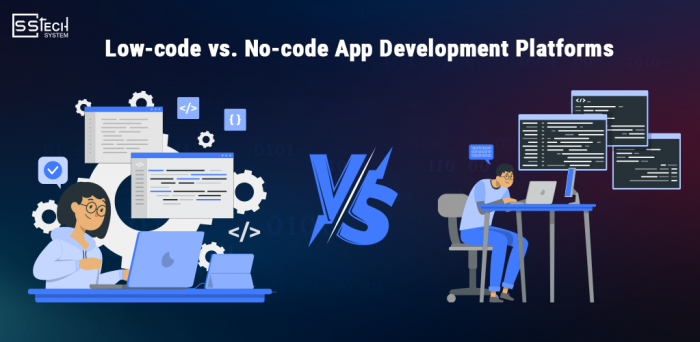
Designing a scalable Finance App is essential in the constantly evolving financial technology world to ensure sustainability and meet the needs of many users in the future. The need for efficient and flexible Finance App Development strategies increases due to the need for reliable and secure financial services.
Thus, this detailed article focuses on selecting the right tech stack to create a sustainable finance app and will discuss the key aspects and technologies related to mobile finance app development. According to the report, 97% of millennials use mobile banking apps, and 89% of customers use them for financial management.
Understanding the basics of finance app development
Finance app development can be anything from a simple mobile finance app to a complicated trading application. Those programs require paramount security, performance, expansion, and friendliness of the interfaces. It is essential because developers have to guarantee solid encryption and safe authentication methods, mainly due to the high level of security financial data implies and compliance with regulations.
The elements that define a specialized finance app
- User authentication and authorization: Users only access the information that they are allowed to and this can only be done by logging in to the system.
- Data encryption: This includes the protection while the information is in transit, often described as encryption in flight and also when data is stored, or in other words, encryption at rest.
- API Integration in finance apps: Integration with numerous financial services and outside vendors, API in financial apps.
- Real-time data processing: A stable data feed is a must-have for mobile trading applications for stocks and artificial trading applications.
Choosing the right tech stack for finance app development
A basic first stage in the creation of a mobile financial app is choosing the suitable tech stack. The scalability, speed, and security of the app would be much affected by the technology choices. We’ll go over many tech stacks here and their fit for building finance apps.
1. Backend Technologies
Node.js for finance app
Node.js is fit for real-time applications like banking apps as its event-driven design is well-known. Crucially for the development of mobile banking apps and trading apps, it can effectively manage many concurrent connections. Node.js also makes it possible to employ JavaScript on the client and server sides, therefore streamlining the building process.
Python stack
Among developers, Python is a beloved tool because of its simplicity and readability. Excellent options for Finance App Development, the Django and Flask frameworks provide scalability and strong security measures. Additionally, perfect for AI trading apps and investment app development is Python’s vast data analysis and machine learning packages.
Java stack
Java offers a strong and safe space for applications in building finances. The whole ecosystem of the Spring Framework guarantees scalability and dependability by supporting enterprise-level projects. Applications with extensive business logic and great performance will find Java especially appropriate.
2. Frontend Technologies
React native finance apps
React Native lets developers create Cross-platform financial app development once and use them on both iOS and Android devices, therefore saving coding effort. While preserving great performance and a natural appearance and feel, this drastically lowers development time and expenses. React Native’s flexibility and efficiency make it ideal for developing mobile financial apps.
MEAN stack
The development of cross-platform financial apps often favours the MEAN stack. Node.js and Express.js address the backend; angular or react provide a strong frontend framework. A great choice for scalable financial applications, MongoDB, a NoSQL database, gives data management flexibility.
3. Database Technologies
SQL database
Reliable options for Finance App Development include conventional SQL databases such MySQL and Postgresql. These guarantee data integrity and dependability by offering ACID (Atomicity, Consistency, Isolation, Durability) qualities. Applications involving structured data and sophisticated transactions fit SQL databases.
NoSQL databases
Designed for horizontal scalability, NoSQL databases such as MongoDB and Cassandra provide adaptability in managing unstructured data. For uses requiring fast throughput and big amounts of data, they are perfect. Many times, NoSQL databases are used with SQL databases to provide a balanced approach to building financial applications.
4. Cloud-based Solutions
Among many benefits are scalability, dependability, and cost-effectiveness, as seen in cloud-based finance solutions. Developers may quickly expand their infrastructure depending on demand by using cloud services such as AWS, Azure, or Google Cloud. Strong security measures offered by cloud platforms guarantee the safety of private financial information as well.
5. Security Considerations
The development of a financial app depends critically on financial app security. Protecting user data depends on putting policies such as end-to-end encryption, multi-factor authentication, and frequent security audits into action. Staying current with the newest security standards and using safe coding techniques can help greatly lower risks.
6. Enhancement of Performance
Retention and user happiness in finance apps depend on performance. Load balancing, caching, and database query optimization, among other strategies, improve app speed. Applications requiring real-time data processing, like Mobile stock trading apps and Financial Market Trading apps, also depend on applying effective algorithms and lowering latency.
7. Development Tools and Frameworks
Selecting appropriate finance tools for app development helps improve output and simplifies the development process. The following are some recommended instruments and models:
API Integration in finance apps: Postman and Swagger are two tools that help finance apps integrate and test APIs, thus guaranteeing flawless communication across many services.
Mobile App Development Frameworks: Cross-platform development features of mobile app development frameworks such as Flutter and Xamarin help to enable the production of high-performance financial applications.
DevOps tools: Jenkins, Docker, and Kubernetes are among the DevOps tools that offer constant integration and deployment, thus guaranteeing effective development processes.
Hiring Finance App Developers
Regarding hiring finance app developers, it’s important to search for applicants with thorough knowledge of financial services and experience in the selected tech stack. Developers should have knowledge of speed optimization and scalability in addition to being strong in safe coding techniques. Furthermore, it is essential to have knowledge of industry rules and standards to guarantee compliance.
Development tools for future finance
With developments in artificial intelligence, blockchain, and cloud technologies, finance app development tools seem to have a bright future. These developments will keep changing the scene of building finance apps, providing developers with strong tools to produce more advanced and safe financial applications.
How do you select the ideal Tech Stack for a scalable finance application?
As you choose the tech stack for a scalable Finance App, take these things into account:
- Project requirements: Evaluate requirements, including security, performance, and user experience.
- Developer expertise: The technology your development team is competent in should be chosen.
- Scalability: Choose technology supporting horizontal and vertical scalability.
- Security: Make sure the tech stack you choose provides strong security measures.
- Community and support: Technology with great community support and thorough documentation should be considered.
Conclusion
Creating a scalable finance app requires a thorough evaluation of security, performance, and user experience, among other elements. The success and long-term expansion of the app depend critically on the correct tech stack being chosen.
Whether using Node.js, Python, or Java, every technology has special benefits for developing finance apps. Using safe coding techniques, strong development tools, and cloud-based solutions can help to improve the scalability and dependability of the app even more.











